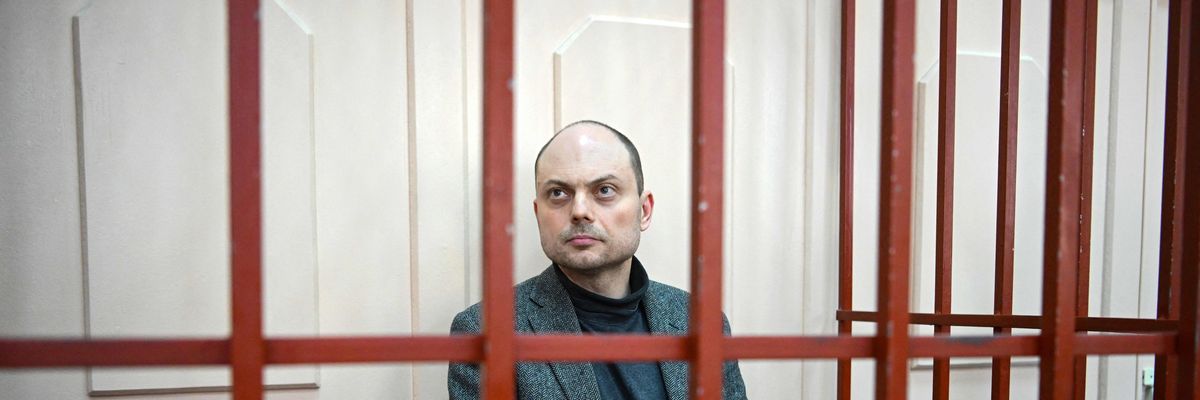The United Nations human rights chief on Monday condemned a Russian court's decision to sentence Vladimir Kara-Murza, a Russian-British dissident who has publicly criticized the invasion of Ukraine, to 25 years in prison after a closed-door trial.
The charges against Kara-Murza, a journalist and longtime Putin critic, include treason and perpetuating false information about the Russian army. The latter charge was brought under a law passed in the wake of Russia's February 2022 invasion of Ukraine.
Volker Türk, the U.N. high commissioner for human rights, called the sentence "another blow to the rule of law and civic space in the Russian Federation."
"Kara-Murza was tried on charges that appear related to the legitimate exercise of his right to freedom of opinion, expression, and association, including his public criticism of the Russian Federation's armed attack against Ukraine," said Türk. "No one should be deprived of their liberty for exercising their human rights, and I call on the Russian authorities to release him without delay. As long as he continues to be detained, he must be treated with humanity and respect for his dignity."
Prominent human rights organizations also denounced the Moscow court's decision, with Amnesty International's Russia director Natalia Zviagina calling it "reminiscent of Stalin-era repression."
Amnesty has deemed Kara-Murza a prisoner of conscience and demanded his immediate, unconditional release.
"Vladimir Kara-Murza's 25-year prison sentence is yet another chilling example of the systematic repression of civil society, which has broadened and accelerated under the Kremlin since Russia's invasion of Ukraine last year," said Zviagina. "The so-called 'crimes' Vladimir Kara-Murza was tried for—speaking out against the invasion and advocacy on behalf of victims of human rights violations—are in fact acts of outstanding bravery."
Kara-Murza, who was first arrested just weeks after Russia's launched its full-scale attack on Ukraine, has denied the charges against him while refusing to drop his criticism of the invasion, which has devolved into a catastrophic war with no end in sight.
Kara-Murza is one of thousands of Russians who have been arrested for protesting the war in Ukraine.
"I subscribe to every word that I have said," Kara-Murza declared in a statement last week. "Not only do I not repent any of this, I am proud of it."
Prior to his arrest, Kara-Murza delivered a speech in the U.S. in which he called Russia's airstrikes on hospitals and other civilian infrastructure "war crimes that are being committed by the dictatorial regime in the Kremlin against a nation in the middle of Europe.
The charging document against Kara-Murza cites the speech as evidence of his guilt.
"The verdict against Vladimir Kara-Murza is a travesty of justice," Hugh Williamson, Europe and Central Asia director at Human Rights Watch, said in a statement Monday. "Russian authorities should immediately vacate the verdict and unconditionally free him."

